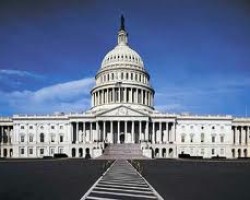
By: Donna M. Nagy
Indiana University Maurer School of Law
Abstract:
This article refutes what has become the conventional wisdom that insider trading by members of Congress and legislative staffers is “totally legal” because such congressional officials are immune from federal insider trading law. It argues that this well-worn claim is rooted in twin misconceptions based on: (1) a lack of regard for the broad and sweeping duties of entrustment which attach to public office and (2) an unduly restrictive view of Supreme Court precedents, which have interpreted Rule 10b-5 of the Securities Exchange Act to impose liability whenever a person trades securities on the basis of material nonpublic information in violation of a fiduciary-like duty owed either to the issuer’s shareholders or to the source of the information. It also argues that nonpublic congressional information constitutes property which, like congressional funds and tangible property, rightfully belongs to the federal government and its citizens.
The article was first presented at a conference honoring the publication of Boston University Professor Tamar Frankel’s new book on Fiduciary Law. Drawing from Professor Frankel’s extensive work, and from the prior application of fiduciary principles in congressional disciplinary actions and Executive Branch prosecutions of members of Congress for so-called honest-services fraud, the article maintains that congressional officials owe duties of trust and confidence to a host of persons including the citizen-investors they serve, as well as the federal government, other members of Congress, and government officials outside of Congress who rely on their loyalty and integrity. These persons are deceived and defrauded when congressional officials misappropriate nonpublic congressional knowledge to enhance the profit in their personal investment portfolios. The article concludes that Rule 10b-5 prohibits members of Congress and legislative staffers from trading securities on the basis of material nonpublic information obtained through congressional service, but for a variety of prudential reasons, it suggests that education, rather than prosecution, may be the SEC’s most effective enforcement tool.
[ipaper docId=72755281 access_key=key-1bsc1obvmatg82xg06mg height=600 width=600 /]
© 2010-19 FORECLOSURE FRAUD | by DinSFLA. All rights reserved.


